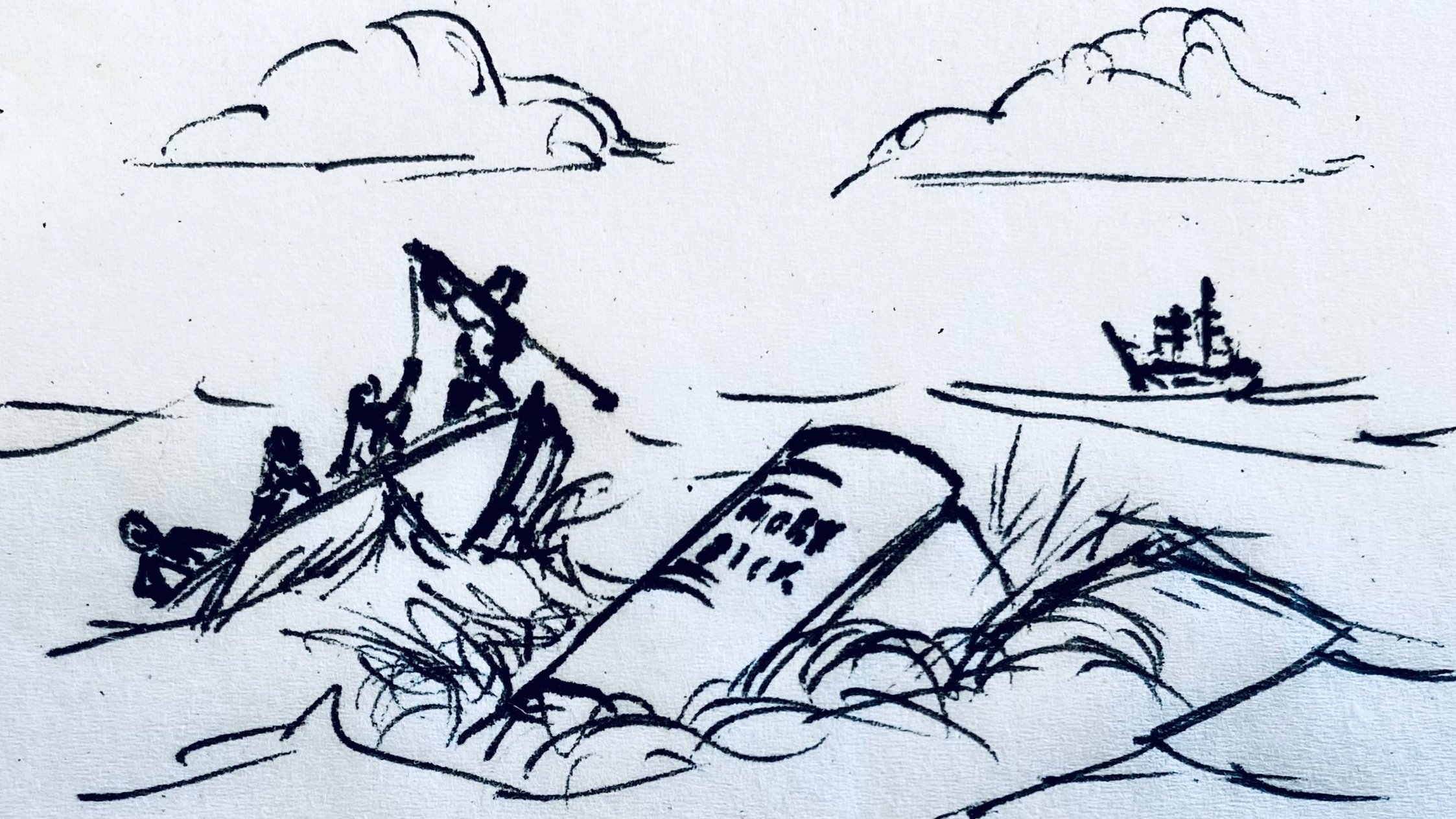White whales and bleak houses
/Napkin doodle by yours truly
Earlier this week, Jay Nordlinger at National Review wrote of an aging concert pianist who had “made peace” with never conquering some famously difficult classical pieces. Nordlinger continued:
This reminded me of Bleak House—Bleak House and me. I won’t retell my tale. (I wrote about this in an essay a few years ago, here.) But suffice it to say: Decades ago, Harold Bloom said that Bleak House is pretty much the best novel in English. I tried to read it for years and years. Just could not. Could not persevere in it. After a final push, I gave up.
I don’t say there is anything wrong with Bleak House, heaven knows. But there is something wrong with me—with me and Bleak House. And I have made my peace (sort of) with never reading it, or finishing it.
He solicited comparable stories and titles from readers, some of whose responses you can read here. A lot of readers concur on Bleak House, and Moby Dick and Middlemarch both come up several times. Readers also name The Sound and the Fury, Crime and Punishment, Les Misérables, and War and Peace, among others. Thematic headiness and sheer length seem to be recurring features of such books.
The one that immediately came to my mind is The Grapes of Wrath. I’ve started it at least three times, maybe four, at different periods of my life and in different circumstances, but I can never make it more than thirty or forty pages. I’ve made a game effort because I always try to finish what I start and one of my oldest friends is a huge Steinbeck fan, but somewhere just past the explicitly phallic farm equipment and the hypocritical preacher recounting his misdeeds I always set it down and never resume.
That’s the one that I thought of right away, but toward the end of Nordlinger’s post one of his readers mentions another book that I’ve worked even harder to finish and never have: Paradise Lost. Like the reader who mentioned this one, I love Dante’s Comedy and much other epic—at times I’ve read nothing but long narrative poems—but I just can’t hack Milton. I’ve written about that here before.
“The courage to put down a book,” Nordlinger writes. “It’s necessary.” And while I can own up to not liking or being able to finish certain books and recognize the value of resigning myself, setting them aside, and moving on, I can’t help but feel that each is an ancient hoard that will remain buried to me until I come back and, finally, read it.
As for Bleak House, I’ve owned a copy for years but have never even opened it. Whenever I hear the title, I always remember a conversation my best friend in high school had with his grandfather. I don’t remember why or under what circumstances, but for some reason his grandfather revealed that he had once read Bleak House. My friend asked him what he thought. After a long pause, his grandfather said, “It’s a bleak house.”





